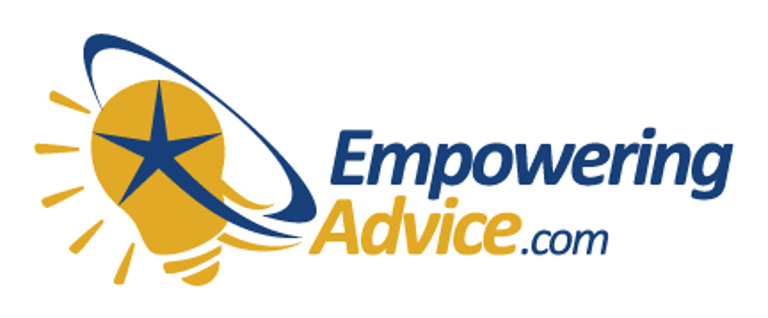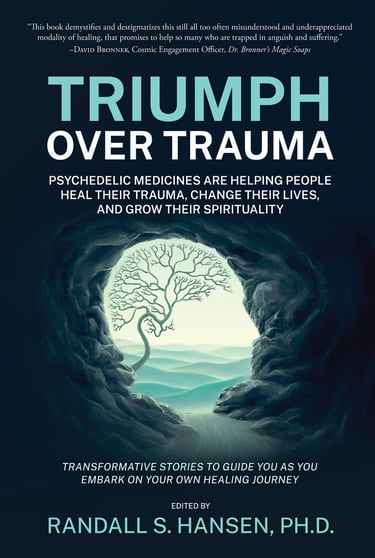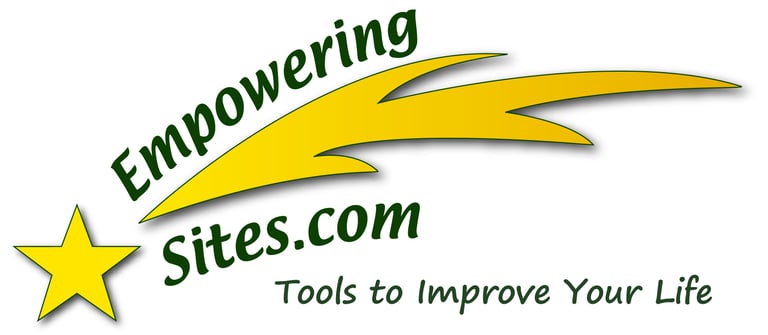Five Reasons You Should be Journaling to Enhance Your Life
Looking for a way to enhance your life? To be more successful? To feel happier and less stressed? Consider starting a Life Journal to help keep track of all the important things in your life -- and to help keep you more focused on the now and the future, rather than the past.
Starting a journal may be just the thing you need to enhance your mental and emotional well-being, as well as something that may help bring more focus to your career and life goals. Journaling can help with self-improvement, self-exploration, and self-actualization.
For the greatest success with journaling, see some of my tips at the end of this article... but the key is simply to go into the process with an open mind and a willingness to stick with it for an extended period of time before judging the results.
So, what can you do with your journal? Here are five reasons -- five ways -- you should be journaling about your life.
Five Life Journaling Topics
1. Set Goals. Sometimes the biggest frustrations we have in our lives is that we feel we are just drifting along -- in our personal lives, in our careers, in our relationships. You can take control of your life by using your journal as a tool for directing your personal and/or professional life a tool of self-actualization.
As you contemplate your goals, think in terms of timelines too. No sense in setting goals if you do not also set up some basic time periods -- or, even better, some deadlines. Use those job interview questions to help you out... where do you see yourself in 1 year? In 3 years? In 10 years?
Finally, use your journal to dissect your goals and break them up into manageable action steps. Goals are wonderful things, but for some us, big goals can seem overwhelming, daunting, unachievable. Whatever your goals, use your journal to also understand and plan the smaller steps necessary to get you closer to your goals.
2. Mark Accomplishments. As a former career coach, I always think in terms of job and career accomplishments, but you can use your journal to track all sorts of accomplishments -- personal and professional, big and small.
Why keep track of your accomplishments? From a professional perspective, it's important to keep an accomplishments record so that when it is time to update your resume, you have all the details you need in your journal.
But it is important also to note your accomplishments -- because we are all much more accomplished than we think/remember. Reviewing your journal and seeing all your accomplishments will help you feel better, more empowered.
3. Record Blessings and Things to be Thankful For. When life gets busy or complicated, it is natural to forget the many positive things in our lives... so keep a list of things for which you are grateful -- the goodness in your life -- as well as answered prayers, and inspirational quotes.
It's very easy to take what we have for granted... from the very basics of food and shelter to friends and family. You can make a list or simply write down something whenever that feeling of gratitude swells within you.
People who are grateful -- and who recognize the people and things in their lives that offer so much -- tend to be happier, healthier, and positive people -- partly because being grateful helps us connect to something larger than ourselves, whether other people, nature, or a higher power.
4. Brainstorm Future Adventures. My favorite part of journaling is imagining a fun and exciting future, filled with happiness, love, and nature.
Your journal can contain your musings about what you want to do in the future. The places you want to go. The people you want to meet. The things you want to accomplish.
Start and maintain a bucket list; write about places you want to go right after you see a post or hear someone else describe their adventures.
5. Ask -- and Answer -- Tough Questions. Journals are the one safe place where we can be introspective and push ourselves to become better persons, as well as to better understand ourselves and our motivations.
You can find lists of questions online, or simply develop your own -- or ask them of yourself as they arise in your daily life.
For example, here are a few of the types of questions that you might ask and answer in your journal:
I am happiest when?
Why did _________ happen to me?
The best partner for me is?
How/why do I sabotage myself?
What are some ways I can improve myself?
What do I need to be happy? To be successful?
What does success mean to me?
How do I fix _____________?
How can I be a better friend/partner/sister/brother/parent?
Final Thoughts: Five Tips on Journaling
1. Choose a format that works for you... there is no one method of journaling. Some folks write in spiral notebooks, others keep their journals on their phones or tablets; some write in full sentences, while others use bullets and numbered lists... the key is finding a method that best works for you -- so that you will use it to your benefit.
2. Set time aside for journaling. The people who are most successful with journaling not only dedicate a portion of their days to journaling, but make journaling a part of their routine... perhaps first thing in the morning or before you go to bed in the evening.
3. Stick with journaling for a set period. Some people see the positive outcomes from journaling almost immediately, while for others it takes some time. When you begin journaling, give yourself a long window before deciding whether journaling is for you or not.
4. Throw rules and perfection out the door. A journal is YOUR tool, your outlet, your instrument. Make the journaling process work for you by completing it in a way that fits your personality. As soon as journaling feels like work, it is doomed.
5. Share your journal -- or parts of it. While journaling is purely a self-help, self-improvement tool for you, you can use some of the insights you gain -- whether about yourself, your ideal partner, or future goals -- with friends and family to help them better understand and know you and build even deeper relationships and connections.


Dr. Randall Hansen is an advocate, educator, mentor, ethicist, and thought-leader... helping the world heal from past trauma. He is founder and CEO of EmpoweringSites.com, a network of empowering and transformative Websites, including EmpoweringAdvice.com.
He is the author of the groundbreaking Triumph Over Trauma: Psychedelic Medicines are Helping People Heal Their Trauma, Change Their Lives, and Grow Their Spirituality and the well-received HEAL! Wholeistic Practices to Help Clear Your Trauma, Heal Yourself, and Live Your Best Life.
Dr. Hansen's focus and advocacy center around true healing ... healing that results in being able to live an authentic life filled with peace, joy, love. Learn more by visiting his personal Website, RandallSHansen.com. You can also check out Dr. Randall Hansen on LinkedIn.






